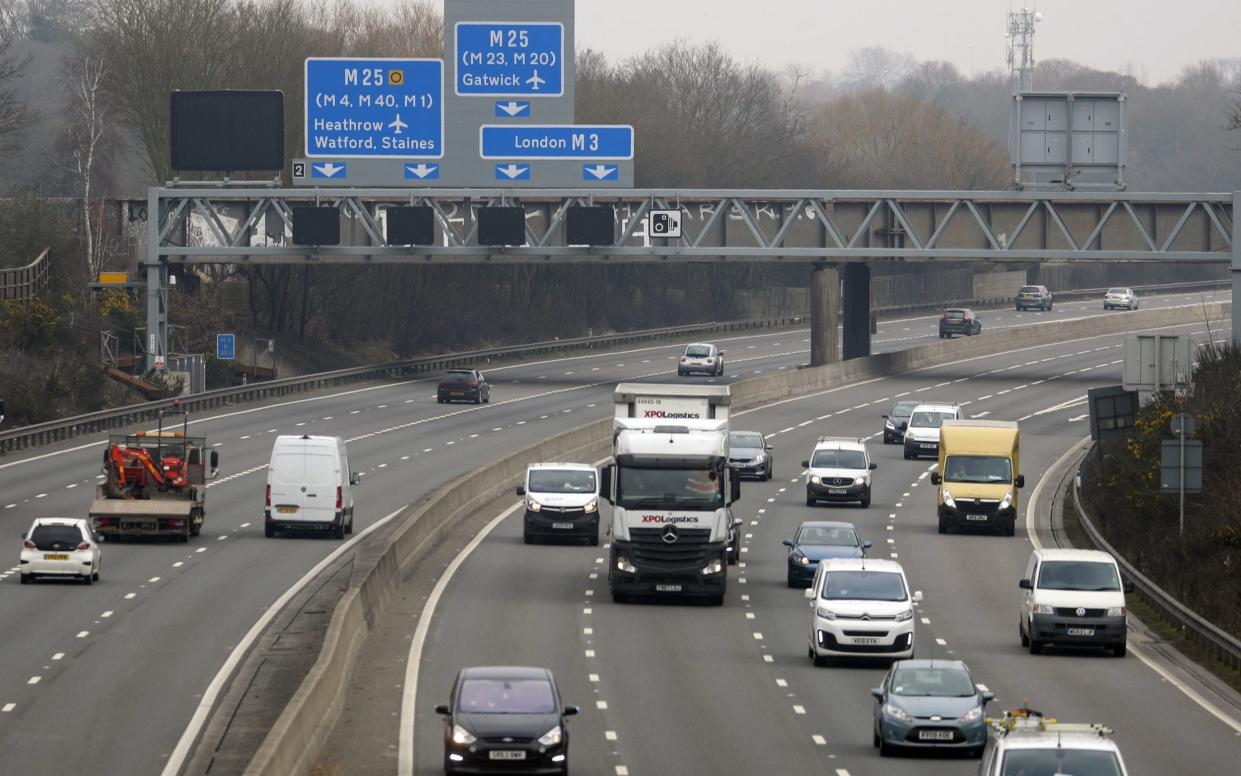Widow whose husband died on smart motorway told ‘dangerous’ hard shoulders won’t be reinstated

The roads minister has told a widow whose husband was killed on a smart motorway that the Government will not reinstate hard shoulders because it would put motorists’ lives at risk.
Baroness Vere wrote to Claire Mercer, whose husband was killed on the M1 after the hard shoulder was scrapped, claiming it was “recognised” that fitting motorways with the lane to pull onto in an emergency “could cause more deaths or serious injuries on our roads”.
Mrs Mercer, 45 from Rotherham, said the letter “proves” that despite ministers pausing the rollout of so-called all-lane-running routes to collate five years’ of safety data they had already made up their minds about keeping the controversial roads.
Baroness Vere wrote to Mrs Mercer the day the transport select committee published the Government’s response to its scathing report that there was not enough safety and economic data to continue transforming the country’s roads network.
Ministers will now only decide whether to continue turning hard shoulders into fourth live lanes once five years of data from existing motorways has been analysed. That is likely to take until 2024 or 2025.
The letter to Mrs Mercer, who set up the campaign group Smart Motorways Kill with other relatives of those killed in live lane breakdowns, says ministers “sincerely value the work of campaigners such as yourself in efforts to help ensure changes are made to improve [road] safety”.
But the baroness adds that the committee of MPs had “recognised” the attempts to improve smart motorway safety, adding how they had also “agreed that the Government is right to focus on upgrading the safety of all-lane-running smart motorways, rather than reinstating the hard shoulder, which the committee recognised could cause more deaths or serious injuries on our roads.”
The baroness was referring to her concerns that motorways without hard shoulders where gantries signs control speeds and lane closures are statistically safer than A-roads. She has also repeatedly insisted that while hard shoulders are perceived as safe, they are also associated with one in 12 motorway fatalities.
Baroness had ‘made up her mind’
Mrs Mercer is calling for ‘controlled motorways’ - where a hard shoulder runs alongside technology like gantries and radars - to be rolled out.
“Baroness Vere’s letter suggests she has made up her mind already, even before five years’ of data has been collated and analysed,” she said.
“The select committee report clearly states the Department for Transport must carefully consider the business case for controlled motorways, which are safest because they have both hard shoulders and technology to control speed limits alongside static vehicle detection radar.
“So, our hope that the Government will choose the safest type of motorway with hard shoulders is now looking premature.
“While the baroness says hard shoulders are linked to motorway deaths, I don’t believe she has said how many lives they have saved.
'Devil is in the detail'
“It feels as though they are playing the game and pretending to tow the line. But, the devil is in the detail, and this letter shows that while they’ve suspended the rollout of all lane running motorways they have no intention of creating controlled motorways, which statistics show are safest. It appears they have no intention of doing what they are pretending to consider.”
Four coroners have issued reports warning how the removal of the hard shoulder could lead to more deaths after hearing cases where motorists have broken down but failed to reach emergency refuge areas before being hit by high-speed traffic.
A Department for Transport spokesman said: “While smart motorways are among the safest roads in the UK, we’ve accepted the Transport Committee’s recommendations to pause new schemes to collect more data.
“The Committee specifically warned against reinstating the hard shoulder, saying it forces drivers onto less safe local roads and isn’t always a safe place to stop.”

 Yahoo News
Yahoo News 
